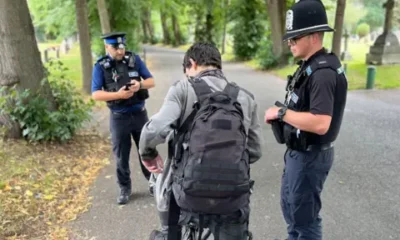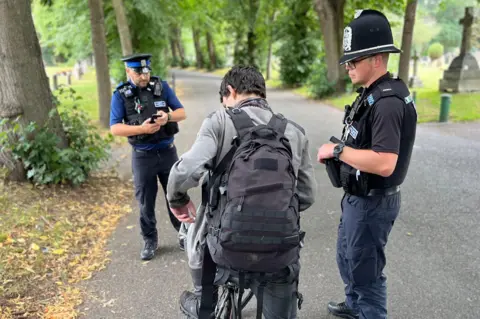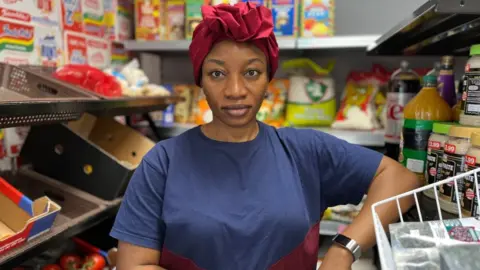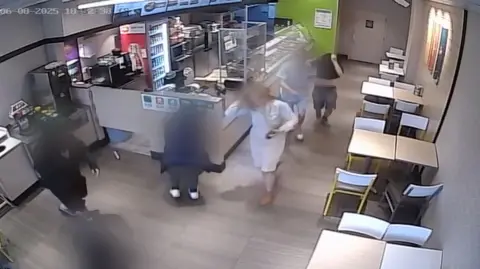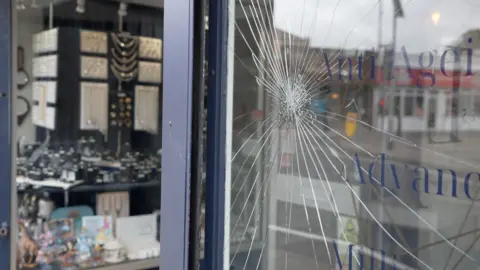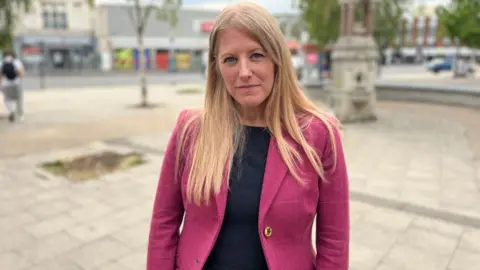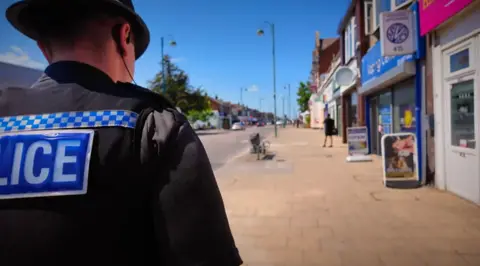(This article is produced by our Gaeltacht team. You can read the English version here. )
TAR ÉIS GUR tugadh chun solais go bhfuair an líon is mó riamh daltaí meánscoile diolúintí ó staidéar na Gaeilge i gclár faisnéise TG4, rinne urlabhraí ón Roinn Oideachais agus Óige cosaint ar an gcóras ag rá gur i gcásanna éisceachtúla amháin a cheadaítear diolúine ach gur gá féachaint ar an scéal i “comhthéacs níos leithne”.
San eagrán de chuid Iniúchadh TG4/TG4 Investigates a craoladh aréir, tugadh chun solais go raibh 60,946 dalta iar bhunoideachais – nó 14.3% den líon iomlán – tar éis diolúintí a fháil ó staidéar na Gaeilge don scoilbhliain 2024/25.
Méadú de bhreis is 5,000 é seo ar líon na ndiolúintí a tugadh amach do 2023/24 agus is dúbailt é, nach mór, ar an méid diolúintí a tugadh amach seacht mbliana ó shin.
I bhfreagra ón Roinn Oideachais agus Óige ar an scéal seo, dúirt urlabhraí gur i gcásanna éascaachtúla ar leith a tugtar diolúintí do dhaltaí a ligeann dóibh gan staidéar a dhéanamh ar an teanga.
“Ní mór féachaint ar líon na ndiolúintí ar staidéar na Gaeilge i gcomhthéacs níos leithne,” dúirt urlabhraí na Roinne.
“Tá líon an gclárú ag leibhéal an iar bhun oideachais tar éis méadú ó 362,899 i 2018/19 go dtí 425,411 in 2024/25 agus is ionann sin agus méadú 17%.
“Tá breis is 18,000 dalta ón Úcráin tar éis clárú, 11,267 ag an mbunleibhéal agus 6,946 sa chóras iar bhunoideachais.
“Tá ardú ag teacht ar líon na bpáistí le riachtanais oideachais speisialta atá coimpléacsach agus is fianaise ar seo go bhfuil beagnach 1700 rang speisialta nua á sholáthar sa chóras oideachais agus go bhfuil clárúcháin scoileanna speisialta arduithe 300 gach bliain.”
Dúradh sa ráiteas ón Roinn Oideachais agus Óige go raibh beagnach 28.000 dalta le riachtanais oideachais speisialta i ranganna speisialta nó i scoileanna speisialta sa scoil bhliain 2024/25.
“Is ionann seo agus beagnach 3% de dhaonra iomlán na ndaltaí atá ag freastal ar bhunscoileanna agus iar bhunscoileanna ar fud na tíre,” arsa urlabhraí na Roinne.
Tá duine de cheannairí Aontas Daltaí Iar-Bhunscoile na hÉireann, Rónán Ó hIcí, Oifigeach na Gaeilge leis an eagras, den tuairim go bhfuil an Roinn Oideachais ag ligean síos na ndaltaí a fhaigheann díolúine mar nach bhfuil aon phlean straitéiseach acu chun an scéal a fheabhsú.
“Is teip atá i gceist leis an gcaoi go gcaitear leis an nGaeilge sa chóras oideachais i láthair na huaire, agus is iad na díolúintí toradh na teipe seo,” dúirt sé le The Journal.
“Is é ár n-éileamh ná chun polasaí cuimsitheach don nGaeilge ón luathoideachas go dtí an tríú leibhéal, bunaithe ar an bhFráma Tagartha Comónta Eorpach, curaclam a léiríonn go bhfuil an Ghaeilge ann do chách – bíodh sin gur inimirceach tú, gur pháiste le riachtanais speisialta tú, nó gur cainteoir dúchais thú.”
Dar le hÓ hIcí, ba cheart go mbeadh an córas níos solúbtha ná mar atá agus go mbeadh rogha ag daltaí tabhairt faoin teanga a fhoghlaim trí chóras Teastas Eorpach na Gaeilge atá mar chuid den Fhráma Tagartha Comónta Eorpach. Thabharfadh sin deis dóibh Gaeilge a fhoghlaim mar theanga chumarsáide agus, le cois, thabharfadh sé cáillíocht atá aitheanta ar fud na hEorpa dóibh freisin.
Dúradh freisin sa ráiteas ón Roinn Oideachais agus Óige go raibh obair ar bun sa Roinn ar pholasaí nua a fhorbairt ar oideachas trí mheán na Gaeilge agus go mbeadh seo á fhoilsiú, ag brath ar bheannú an Aire an Fhómhair seo.
“Tá críoch á chur ar phlean gnímh don Ghaeilge i scoileanna a fheidhmíonn trí Bhéarla faoi láthair agus tá súil go bhfoilseofar é, ag brath ar bheannacht an Aire a bheith faighte aige, an Fhómhair seo, agus go mbeadh sé curtha i bhfeidhm idir seo agus Meán Fómhair 2027.
Luadh beartais eile i measc tacaíocht bhreise d’oideachas trí mheán na Gaeilge agus don Ghaeilge mar ábhar atá á ullmhú nó forbartha ag an Roinn. Ina measc tá tacaíocht á thabhairt don Chomhairle Um Oideachais Gaeltachta agus Gaelscolaíochta chun ranganna a chur ar fáil chun scileanna Gaeilge a fheabhsú agus fearas uirlisí chun treoir a thabhairt le haghaidh slite beatha agus roghanna oideachais ard leibhéil le Gaeilge.
Beartas eile a luaigh urlabhraí na Roinne ná maoiniú d’Fhoras na Gaeilge chun an togra Gaelbhratach a chur chun cínn, togra a spreagann scoileanna scéimeanna chun níos mó Gaeilge a úsáid a chur i bhfeidhm. Tá beartais eile ann chun cur le hoiliúint múinteoirí maidir le múineadh na Gaeilge do dhaltaí le riachtanais éagsúla.
Tá tacaíocht á fháil ag Beartas Gaeltachta The Journal ón Scéim Tuairiscithe ar Dhaonláthas Áitiúil












